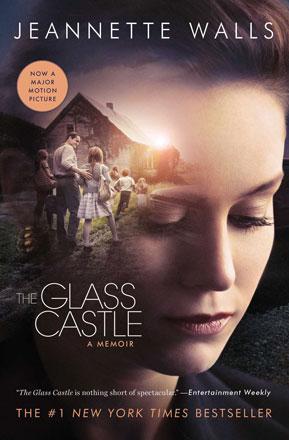You are here
‘You’ll still have your stars’
By Sally Bland - Dec 17,2017 - Last updated at Dec 18,2017

The Glass Castle
Jeannette Walls
New York: Scribner, 2017
Pp. 279
In crisp, effortlessly flowing prose, Jeannette Walls tells the story of her very unconventional upbringing in an extraordinary family dominated by a father who might be described as a genius or a madman, depending on one’s perspective. His big dreams and fearlessness spur adventure and self-discovery, but combined with his alcoholism, also lead to poverty, hunger and serious accidents for the children, which the mother’s absorption in her painting does little to alleviate.
Yet, unlike some memoirs which recount a family’s ill fortunes (“Angela’s Ashes” comes to mind), one is not so much moved to pity as to admiration for what the family members accomplish in the face of adversity. Underlying the drama is a debate on what values one should live by.
The book’s title refers to the father’s biggest dream; it is also a metaphor for the parents’ value system and the organising principle of their life style. Building a glass home in the desert is not just an idle dream; there is a detailed blueprint: “The Glass Castle would have solar cells on the top that would catch the sun’s rays and convert them into electricity for heating and cooling and running all the appliances. It would even have its own water purification system… Dad had worked out the architecture and the floor plans and most of the mathematical calculations”. (p. 25)
This is in the very early 1960s, when environmental awareness was in its infancy!
Finances for the project are lacking since the parents work irregularly at best, so the family is propelled on a perpetual search for gold. “We moved around like nomads,” writes Walls of her early childhood. “We lived in dusty little mining towns in Nevada, Arizona, and California… We counted eleven places we had lived, then we lost track”. (pp. 19, 29)
Besides fossil fuels, Rex and Rose Mary Walls oppose waste and consumerism; they refuse to be chained to jobs they hate or to depend on experts. People should learn how to do things for themselves, and make what they need. The family dress in semi-rags and eat irregularly and often poorly; they avoid doctors and buying anything that can be salvaged from what others throw out. While this causes hardship and embarrassment for Jeannette and her three siblings growing up, it also develops their endurance, creative skills, self-reliance and resourcefulness.
What they lack in material goods is compensated for by intangibles, not least their parents’ unmitigated love. One Christmas, Rex offers Jeannette a star as her gift, and she chooses the planet Venus for its brightness. “We laughed about all the kids who believed in the Santa myth and got nothing for Christmas but a bunch of cheap plastic toys. ‘Years from now, when all the junk they got is broken and long forgotten,’ Dad said, ‘you’ll still have your stars’.” (p. 41)
There is usually lots of fun at home, opportunities for creativity, and high adventure camping in the American Southwest, getting to know nature first-hand. If they don’t have proper furniture, they have a used piano. The children receive their real education at home in a hands-on mode, rather than at the schools they sporadically attend. Jeannette can read by the age of three; she and her siblings progress beyond picture books long before they enter first grade. “After dinner, the whole family stretched out… and read, with the dictionary in the middle of the room so we kids could look up words we didn’t know. Sometimes I discussed the definitions with Dad, and if we didn’t agree with what the dictionary writers said, we sat down and wrote a letter to the publishers”. (p. 56)
It is not hard to see where Jeannette acquired the skills and insight that later made her a top-notch journalist and writer. The self-motivated, independent learning that these parents instilled seems like what educators have always aspired to.
The family later moves to the small mining town in West Virginia where Rex grew up. Here, the narrow-mindedness they encounter only sets their free-wheeling spirit in relief. By this time, the parents’ disfunction has become more acute, and the author drops more hints as to the reasons why. Still, the children are able to fend for themselves, affirming the basic soundness of their upbringing, despite neglect and situations which might be considered abusive, but also affirming the difficulty of living according to one’s values if they fall outside society’s norms.
It must have taken a lot of courage for Walls to record the intimate details of her family life and her conflicted feelings about her parents, but by so doing she tells an absorbing and provocative story that shows that real life can be more exciting and outlandish than any fantasy.
“The Glass Castle” is a bestseller and made into a movie, but the book is reportedly much better. With Walls’s evocative prose, there is no need for film. Though the book is devoid of lengthy descriptions, vivid images of the characters and scenes flash unbidden in the reader’s mind. Walls is very talented at painting a scene in few words, without overworking it.
Related Articles
Living with Arabs: Nine Years with the Petra BedouinJoan WardUm Peter Publishing, 2014Pp.
Extraordinary Renditions: American Writers on PalestineEdited by Ru FreemanMassachusetts: Olive Branch Press/Interlink Publishing, 2016Pp.



















